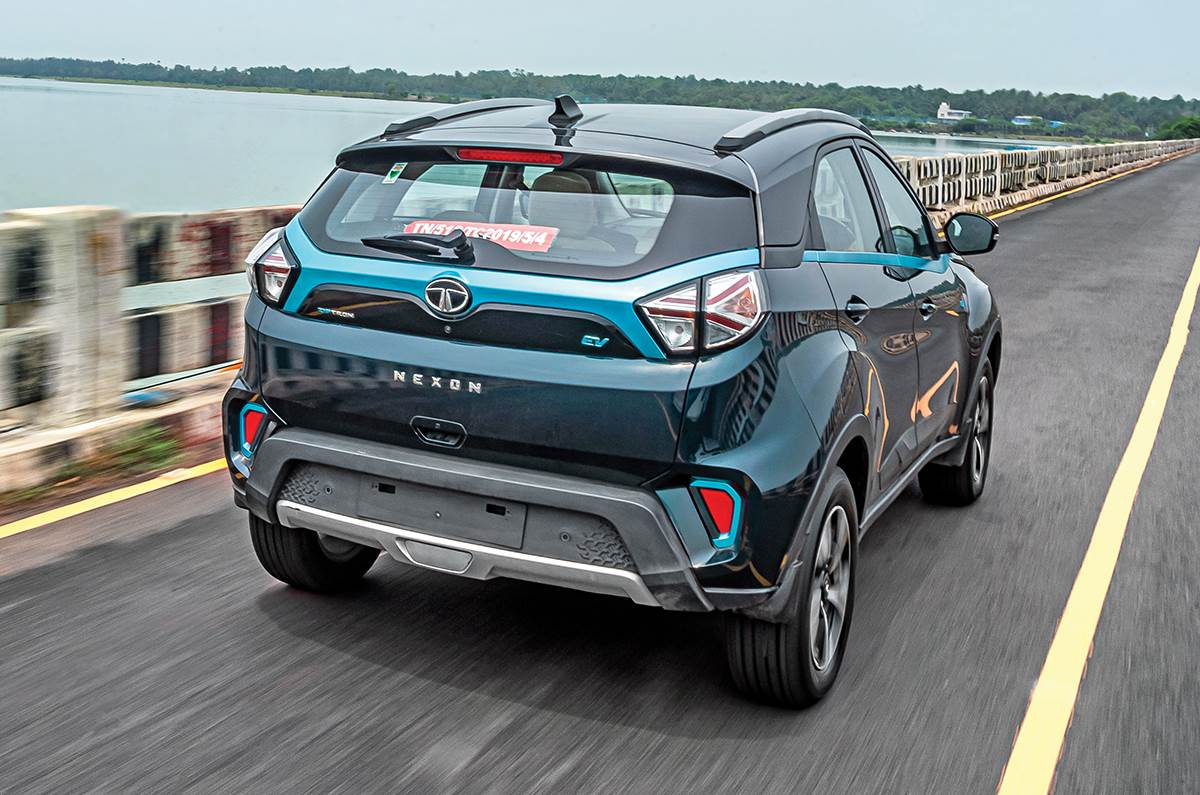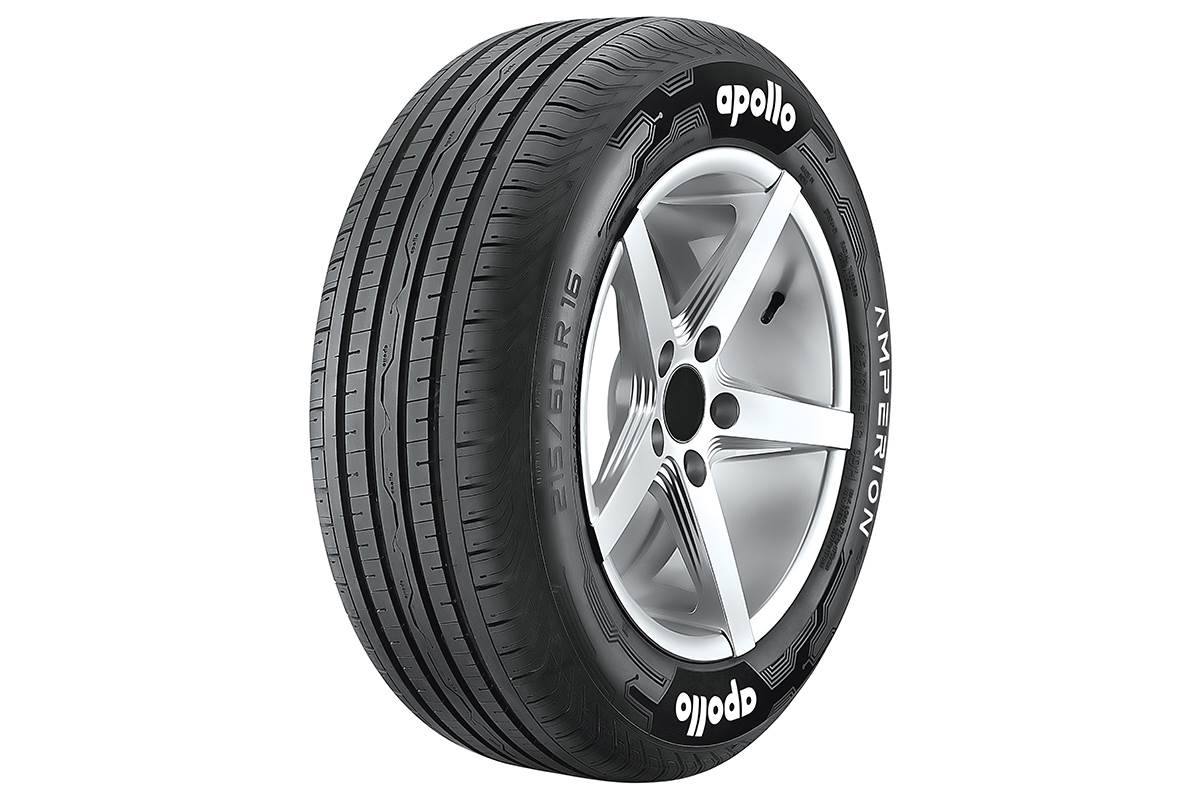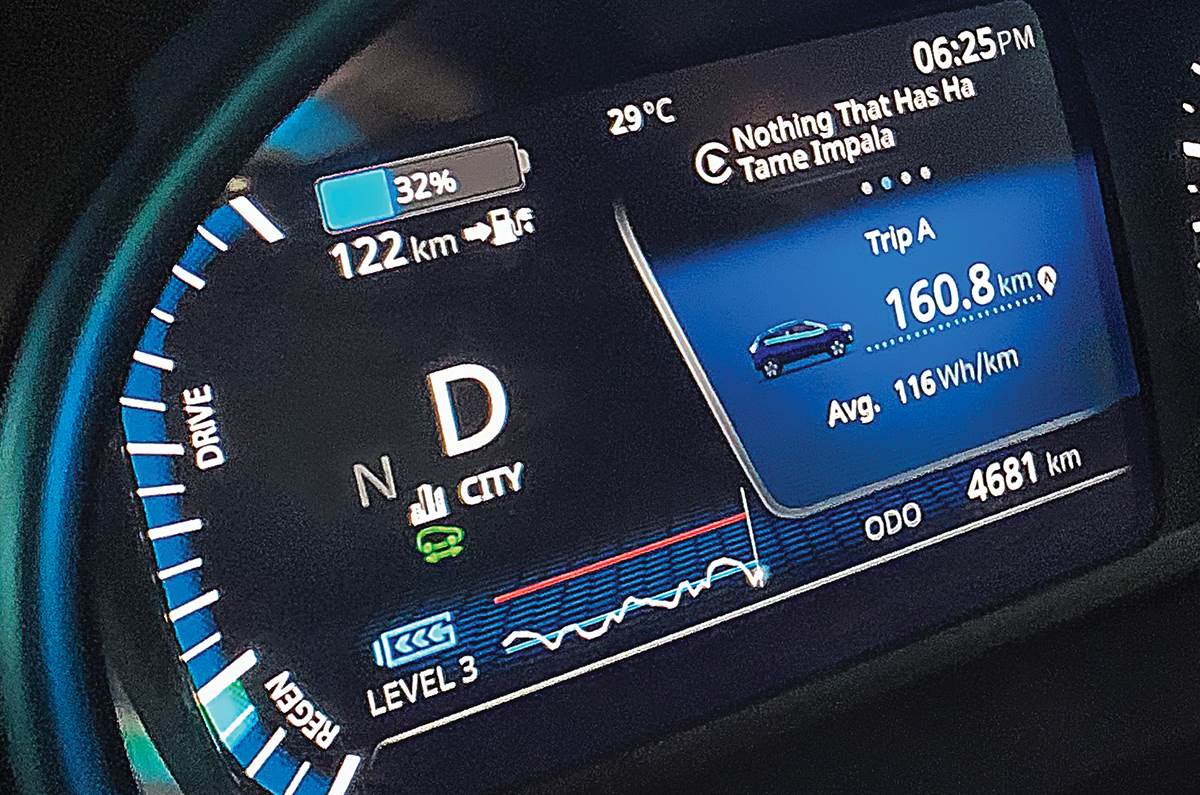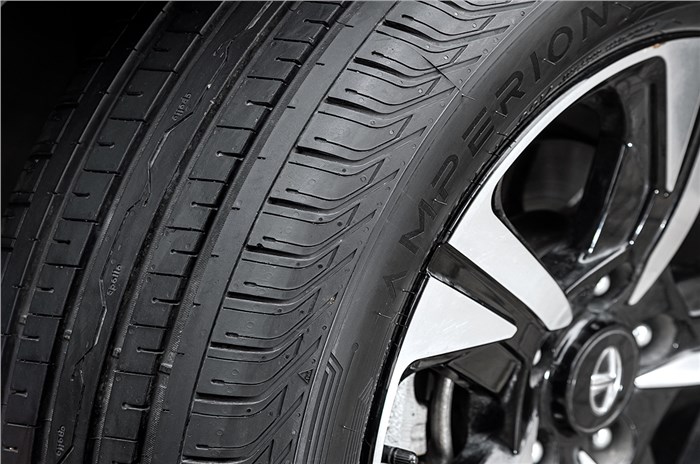Minimal rolling resistance, low noise, better range. Apollo Tyres’ new EV-specific range offers a host of benefits to electric vehicle owners.
The East Coast Road, which connects Chennai with Pondicherry, is one of our favourite stretches. With a great view of the ocean, sparse traffic and smooth tarmac, it is an instant mood-lifter. Last month, we found ourselves on this very road yet again. This time, though, apart from submitting ourselves to the pleasures of the open road, we were also checking out Apollo’s Amperion, one of the country’s first-ever tyres specifically made for electric vehicles.

So, yes, it goes without saying that we were in an EV ourselves, and a formidable one at that – the Tata Nexon EV Max – shod with Apollo Amperion. Hold on, why would EVs need tyres specially made for them, and how are they different from regular tyres?
Electric vehicles offer a bunch of many obvious benefits, but there is also another side to the picture, especially in the context of tyres. EVs are significantly heavier than ICE vehicles, due primarily to the weight of the battery packs, and that instantaneous torque, which enthusiasts keep raving about, leads to higher tyre wear. While EV tyres might look similar to tyres used by ICE vehicles, they are markedly different when it comes to tyre design, components used and construction.

The Apollo Amperion, for instance, uses the latest-generation polymers, traction resin, and other raw materials. And, to manage the instant acceleration of EVs, the Amperion also has an improved tread pattern and rubber compounds. The Amperion range, available in 195mm and 215mm tread sizes, in both R16 and R17 rim profiles, utilises high-traction, full-silica rubber for its tread compound.
The Amperion, whose design takes inspiration from jellyfish, is considered to be among the most energy efficient and silent creatures, also exhibits lesser rolling resistance, amounting to around 30 percent. This consequently improves the performance of the EV and extends its battery range. Apollo calls the ultra-low rolling resistance technology package BEST Tech (Battery Energy Saver Technology).
Another attribute that helps the Amperion achieve reduced resistance on the road is its recessed profile, which helps lower aerodynamic drag. The Amperion is not just among the first EV-specific tyres to be launched in India, it is also the first EV range of tyres to receive a 5-star rating for all the released sizes by the Bureau of Energy Efficiency.

Electric vehicles such as the Tata Nexon offer quiet, relaxing drives, and tyres such as the Amperion improve on the experience. The Amperion is equipped with AQuT Tech (Apollo Quiet Tyre Technology), which works on tyre cavity, tread pattern and construction to reduce noise. The tread pattern on the Amperion is stiffer and has a larger footprint with multiple pitch sequences to achieve the desired requirements of low noise, besides helping achieve low-rolling resistance and high traction.

In ICE vehicles, tyre noise is subsumed by the roar of the engine, but in an EV, the former is very noticeable and Apollo has done a commendable job in elevating the serenity inside EVs. But the trick up the Amperion’s sleeve is not restricted to just low noise – according to Apollo, Amperion tyres are capable of enhancing the range of EVs by up to 8 percent. Which is, of course, what got us curious in the first place and led to this drive we are on.

To cut a long, pleasant story short, the Amperion tyres made the ECR drive a memorable experience. Our plan was to head to Pondicherry and back on a single charge and then tally the figures with our previous tests with the Nexon EV Max. (The Nexon EV Max had achieved 263km back in June.) We stuck to City and Eco modes during our run, and after a quick lunch in Pondicherry, we headed back up the ECR, keeping an eye on the odo all the time. The final numbers were pretty impressive. The Nexon EV Max achieved a range of 280km, which was about 5 percent more than our previous real-world test figure of 263km. Clearly, it pays to think differently when it comes to EV tyres, and Apollo has shown it also pays dividends.
Hitesh Joshi, head of R&D at Apollo Tyres, on how the Amperion enhances the EV experience.
What are the salient features of the Apollo Amperion?
The Apollo Amperion tyres are specifically designed for electric vehicles, which have different performance requirements than regular ICE vehicles. EV tyres have to meet specific expectations that have to do with range, traction, as well as robustness and durability because of the difference in weight between an EV and ICE vehicle.
What are the major differences between a regular tyre and a tyre specifically made for EVs, such as the Amperion?
The biggest expectation is the battery range. The tyres have been designed with best-in-class rolling resistance specifically for EV vehicles and customers can expect the tyres to extend the battery range by a minimum of 5 percent. We have also taken into account the extra traction requirement, as the motor torque is quite high in EVs, and also the fact that they weigh more than ICE vehicles. So, it helps EVs brake at the right distance, ensuring that regenerative braking also comes into play seamlessly. The tyres’ load-bearing capabilities are also top notch and we have designed them keeping Indian conditions in mind.
In terms of construction, how is the Amperion different?
We’re using a specific technology of full-silica tread to ensure that we get the right traction and right rolling resistance. Apart from the full silica tread, we also use fourth-generation polymer technology and functionalised resins, which impart high traction to the tyre, apart from other properties. So, this is the key difference in this style. Coming right back to the construction, we also reinforced the tyre for Indian road conditions and to ensure the desired traction and handling are provided.
How does the Amperion help extend battery range?
When we designed the Amperion, we worked a lot on getting the materials technology and design bang on. The design of the cavity of the tyre helps it deliver much better aerodynamic drag force. And that helps in reducing the overall rolling resistance.
Also see:


























